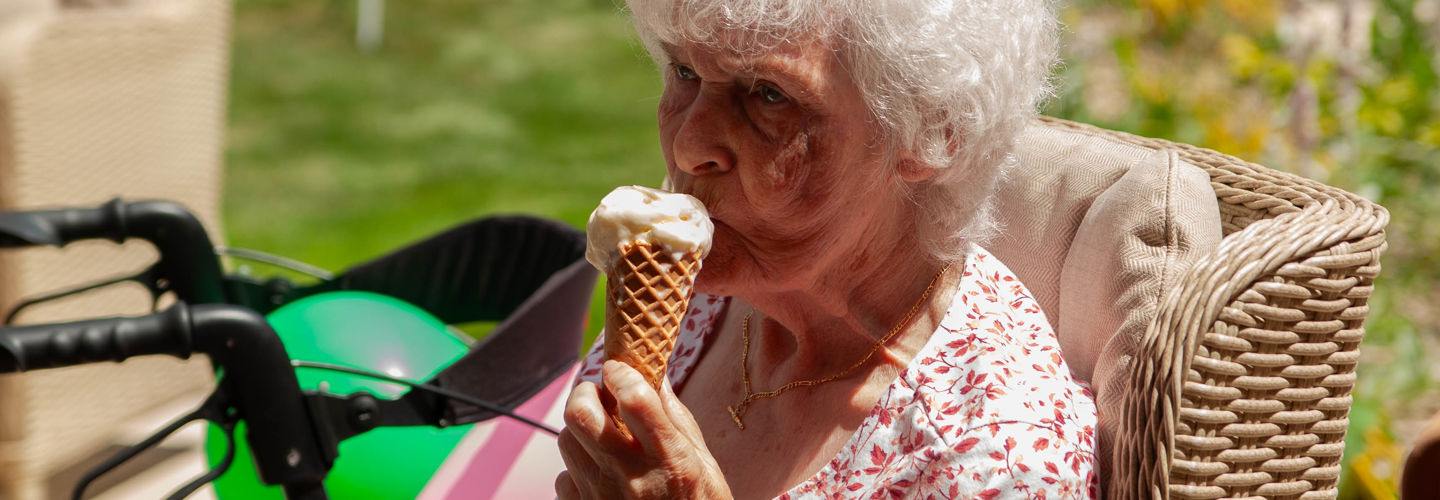
Staying Safe in Hot Weather: Heat Safety Tips for People at Home
Published: 28/07/2025
As summer temperatures rise, staying safe in hot weather becomes more important than ever. People spending more time at home, especially older adults or those with health conditions, can be more vulnerable to the effects of heat. Not everyone recognises the signs of overheating or dehydration until it becomes serious.
Whether you are a family member, friend, neighbour or care assistant, this guide offers practical tips to help keep people safe, hydrated and comfortable at home during hot weather.
Why Hot Weather Can Be Risky at Home
High temperatures can affect people in different ways. For those who are older or managing health conditions, the risk of heat exhaustion and dehydration is much higher. Some people:
-
May not realise they are too hot or thirsty
-
Avoid drinking due to health concerns or continence issues
-
Wear clothing that is too warm for the weather
-
Take medications that affect the body’s ability to cool down
Heat-related illness can come on quickly, so it is important to stay prepared and observant.
Hydration Tips for Hot Days
Drinking enough fluids is one of the best ways to prevent heat-related illness. But not everyone enjoys drinking water, and some people may forget. Here are a few ideas to support hydration:
-
Offer water-rich snacks like melon, jelly, ice lollies or cucumber
-
Encourage small sips of water, squash or juice throughout the day
-
Use familiar cups, bottles or straws to make drinking easier
-
Offer drinks regularly, not just with meals
-
Look out for signs of dehydration such as a dry mouth, darker urine, tiredness or confusion
If you are concerned about someone’s fluid intake, keep a simple record and raise it with a healthcare professional if needed.
Even indoors or during short periods outside, the sun can cause harm. Here are a few tips to help protect skin and reduce the risk of overheating:
-
Use SPF 30 or higher and reapply every couple of hours
-
Encourage light, loose clothing and wide-brimmed hats
-
Avoid being outside during the hottest part of the day, between 11am and 3pm
-
Create shaded areas in gardens or by windows using parasols, curtains or blinds
-
Offer indoor alternatives to outdoor activities when the sun is strong
Sun protection is just as important in the UK as it is abroad.
Keeping the Home Cool
A few small changes can make a big difference when it comes to cooling down indoor spaces:
-
Keep curtains or blinds closed in rooms that get direct sunlight
-
Open windows to allow fresh air in, if it is safe to do so
-
Use fans or cooling devices to circulate air
-
Offer cool showers, baths or flannels to help reduce body temperature
-
Check in regularly, especially if someone seems quiet or out of sorts
Even small signs of overheating should not be ignored.
Watch Out for Heat-Sensitive Medications
Some medications can make it harder for the body to cool down or sense thirst. These may include:
-
Diuretics (water tablets)
-
Antidepressants and antipsychotics
-
Anxiety medication
-
Some antihistamines and bladder medications
-
Epilepsy treatments
If you are unsure whether a medication increases heat sensitivity, speak to a pharmacist or healthcare professional. Extra caution may be needed during hot weather.
Know When to Seek Medical Help
Call 999 or seek urgent help if a client:
-
Becomes unusually drowsy, confused or unresponsive
-
Has hot, dry or very red skin
-
Starts vomiting or complains of feeling faint
-
Experiences a seizure or collapses
It’s always better to be cautious. Heat-related illnesses can escalate quickly.
Hot Weather Safety Checklist
Here is a quick list to keep in mind during hot days:
-
Are drinks being offered regularly?
-
Is clothing suitable for the weather?
-
Are fans or shaded areas being used indoors or outdoors?
-
Has sun cream been applied if going outside?
-
Is anyone on medication that may increase their risk in the heat?
-
Are there any early signs of dehydration or heat exhaustion?
Final Thoughts
Hot weather can be enjoyable, but it also brings real risks for people at home, especially those who are older or more vulnerable. By encouraging regular fluids, adjusting daily routines and watching for warning signs, you can help keep loved ones and clients safe throughout the summer.
Share this guide with friends, neighbours or your care team so everyone can stay cool and well when the heatwave hits.
